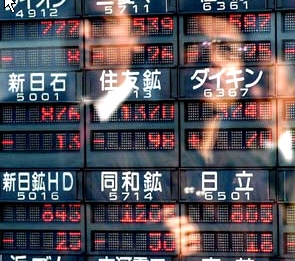By Camille Vial, CEO, Mirabaud & Cie SA
The last couple of months and years have been marked by the COVID-19 pandemic and the war in Ukraine. Such issues highlight the interconnectedness of our lives as well as the inherent uncertainty surrounding societies and global economies. Systemic challenges are also seen in the imminent threat of climate change, which is expected to have dramatic socioeconomic consequences in the future years. The recent shift from an abstract threat to extreme weather changes and temperature records emphasizes the need for coordinated action to reduce greenhouse gas (GHG) emissions that cause climate change.
While some sectors and industries such as energy, industrial and transportation are in the frontline as main contributors to the environmental issues that pervade our world, other industries, less pointed at are vital in achieving the global transition and reach the needed low carbon economy. Global fashion industry for instance, accounts for about 8-10% of global carbon emissions, and nearly 20% of wastewater.
Regulatory and socio-economic drivers
A 2021 report from the World Economic Forum identified fashion, and its supply chain, as the planet’s third largest polluter (after food and construction). Latterly, and in addition to voluntary initiatives, governments and policy makers started joining efforts in order to promote sustainable practices and conscious consumption in the fashion industry. For instance, in March 2022 the EU Commission adopted a “Strategy for Sustainable and Circular Textiles” with the aim to create a coherent framework for the transition of the textiles sector. By 2030, textile products placed on the European Union market will for example need to be long-lived and recyclable, made largely by recycled fibres or produced in respect of social rights and the environment.
Rethinking fashion models is thus necessary for sustainability, but it also provides the sector with unparalleled potential. Circular business models, by decoupling revenues from production and resource use, are generating considerable environmental savings while expanding to billion-dollar values. The growth of such models is also driven by demand from GenZ and Millennials, particularly those living in urban areas.
According to the World Economic Forum, switching production to renewable energy sources alone reduces emissions by 45%, as emissions in the textile and garment manufacturing process are primarily driven by high shares of fossil-derived energy (e.g., lignite, hard coal, gas, and oil) in production countries’ domestic energy mix. This reflects the interrelation between sectors and how driving meaningful policy change in fashion requires cross-sectoral collaboration and coordination by policy and government bodies.
Private Equity – a vehicle for transitioning to a more sustainable economy
Investors play a pivotal role in this collaboration and are expected to join efforts in redirecting capital flows to finance the transition to a more sustainable and low carbon economy. Indeed, thanks to its direct involvement in the holding companies, private equity allows a concrete and measurable impact on the real economy.
For example, Mirabaud’s Private Equity strategies embrace an investment approach based on sustainable capital growth by supporting the development of disruptive lifestyle companies, from digital and technological pioneers to the most promising global brands. Its guiding principles are built around ethics and governance, and responsible usage of natural resources. In 2021, as in 2022, they continued building their portfolios to support entrepreneurs looking to disrupt the fashion, luxury and lifestyle markets to create a better and more sustainable future for these sectors. Investing in companies that look to revolutionise the design, the manufacturing, the distribution and the end of life of its products, can help show the way, in our view.
One of these companies is trying to bring an effective change to the fashion industry by integrating the use of innovative materials in its products limiting the environmental impact of the manufacturing process. Being a strong supporter of philanthropic causes, the brand supports biodiversity and ocean health. Having developed a strong community, it is able to promote sustainable fashion among consumers and social media. In a similar way, responsible sourcing, ethical factories, timeless designs are key to the development of another brand within the vehicle.
Beyond financial returns
Signatory to the Net-Zero Asset Managers Initiative, Mirabaud Asset Management is more than ever committed to achieving the global sustainability agenda in general, and a low carbon economy in particular. The strong demand for a second vintage of our strategies around Living Heritage companies and the Lifestyle ones, illustrates the way our clients and the market in general, wish to support companies of the ‘real economy’, able to achieve both internal sustainable practices and scaled impact through positive contributing products and services.
Through the direct involvement that the private equity investment models allow, investors are able to establish a mid, long-term relationship with the companies invested in. Financing and accompanying disruptive business models that meet the needs of current generations and those to come, does not only ensure financial returns but also the achievement of extra-financial additionality and a truly sustainable development.




